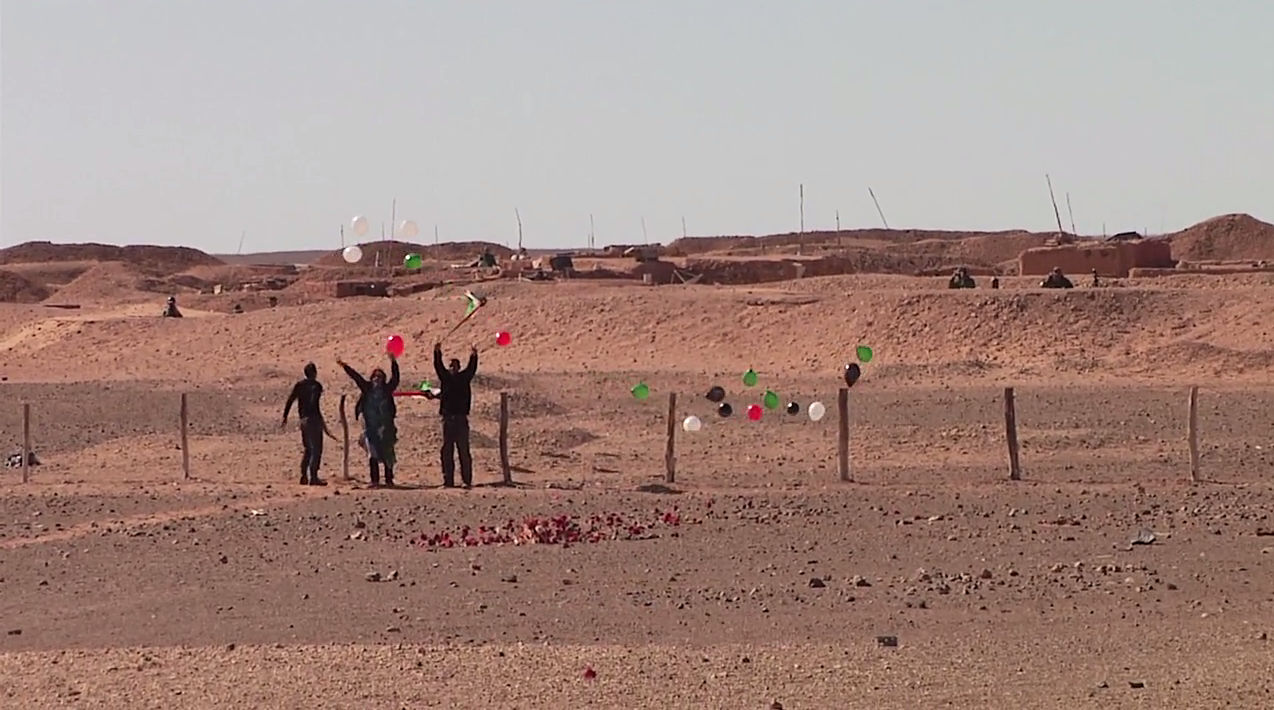The latest documentary presented by Cinema Politica shows a fight for independance
Perhaps you’ve looked at a map of Africa and wondered why Western Sahara looks so different from its surrounding countries, usually with its name italicized and separated from Morocco with a dashed border.

Or maybe you already know about Western Sahara and have a thirst to learn more, in which case you should watch Life is Waiting: Referendum and Resistance in Western Sahara for its depiction of the unique predicament of Western Sahara and its independence movement. Written and directed by Iara Lee, this one-hour documentary gives an introduction to the fight for self-determination by the Sahrawis of Western Sahara, which was once a colony of the Spanish empire, and is now a territory occupied by Morocco. Through music, art, film and other peaceful means, you can learn from the different struggles experienced over the years by young and old alike as Western Saharans face war and difficult life conditions.
The documentary starts off with a short but necessary history lesson. Seemingly successful in its fight for independence from Spain in 1975, Western Sahara soon found itself embroiled in a war with Morocco and Mauritania, and then just Morocco.
In 1991, peace was achieved between Western Sahara and Morocco with assistance from the United Nations. However, according to the film, the hoped-for referendum to finally achieve full independence was unsuccessful, and was not pushed for hard enough by the global community. Now with Morocco occupying most of the land and coastal sea and with very little attention from outsiders, the film focuses on those Sahrawi activists who are attempting to continue their struggle through creative means.
To some, Life is Waiting will remind them of 2007’s The Devil Came on Horseback for its review of the conflict in Darfur and the struggle for media attention and global intervention. But unlike The Devil Came on Horseback, which follows one protagonist throughout the documentary, Life is Waiting highlights the many artists and other activists who are living in occupied Western Sahara, in Spain as exiles and in Algeria as refugees. This may be both the film’s strength and one of its flaws. On one hand, the viewer gets to learn from multiple activists who use many different methods, including rap and poetry, to reach a wider audience that may push governments to offer political assistance. On the other hand, the viewer may feel like hearing about a single activist more in depth.
One activist who stuck out, and may resonate with some of the more musically inclined audience members, was Mariem Hassan, a singer-activist for the movement.
“I was a young girl at that time [of the movement for independence from Spain]. Songs were used to motivate people to stand up against the Spanish occupation, demonstrating and singing patriotic songs. Youth back then were no different than youth today … Youth is behind all action. In that era, songs were our source of education and our weapon. People would come rushing to listen to the verses,” she said.
And indeed, there is a lot of beautiful music throughout the film. If not for the activism, then at least the music and arresting visuals of the Sahara landscape, this is a documentary worth watching.
Cinema Politica is hosting the Canadian premiere on Monday, Nov. 2 from 7 p.m. to 10 p.m. at Concordia’s Alumni Auditorium, H-110. There will be a Skype question-and-answer session with the film’s co-producer and activist Salah Abdelahe. To learn more about this documentary and others being shown by Cinema Politica in the coming months, look them up on Facebook at Cinema Politica Concordia.



